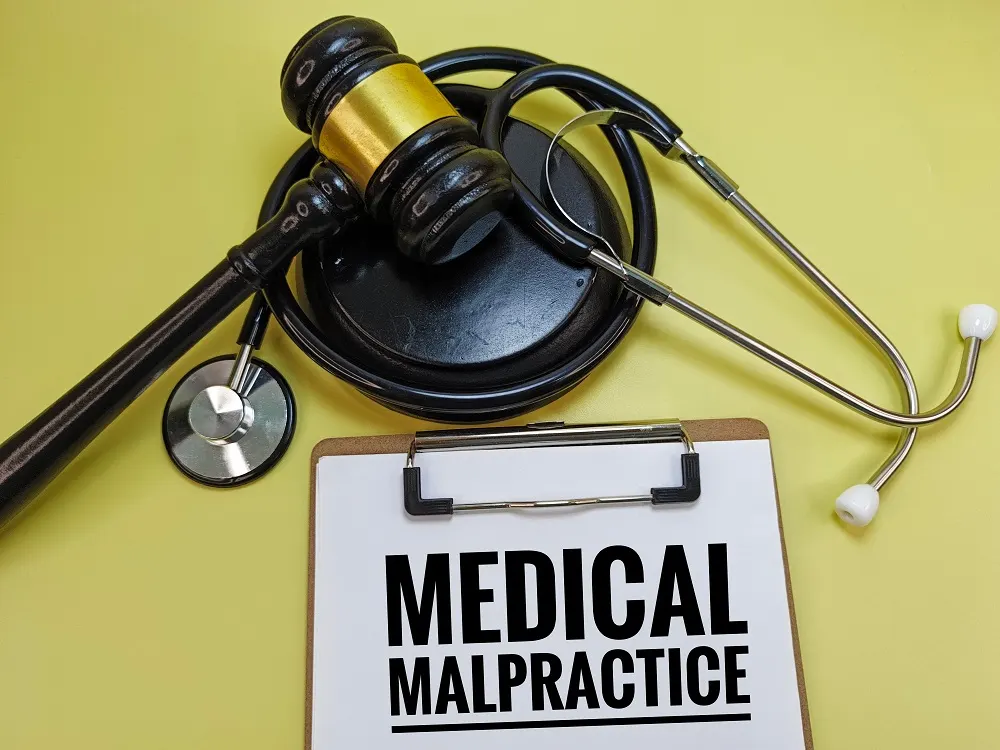Our Notable Medical Malpractice Verdicts & Settlements
With a reputation for handling numerous notable injury lawsuits, the Jacob D. Fuchsberg Law Firm offers an insightful look into significant cases. Explore some details to understand comprehensive legal mastery of our attorneys.
.svg)
View All Success Stories
.svg)
We Are Your Trusted New York Medical Malpractice Attorneys

Hospitals often use anesthesia during surgery to prevent pain. If you are given general anesthesia, you become completely unconscious. Later, you won’t remember anything that happened during the surgery. You become helpless and have to rely on the medical staff to perform their jobs correctly while you are not aware of what is going on.
Anesthesia is an important part of medicine, making it possible to do surgeries that otherwise would be too painful. Most of the time, anesthesia is safe. However, there are significant risks. If a patient is older or has certain medical conditions, or if the anesthesiologist is careless and makes a mistake, a patient can be severely injured or even die.
The attorneys at the Jacob Fuchsberg Law Firm have handled hundreds of cases in which hospitals and doctors failed to adhere to proper standards of care when using anesthesia. We have successfully represented victims and their families for more than three generations. Every case is different. Let our anesthesiologist malpractice lawyers help you determine whether an anesthesia lawsuit is the right choice for you.
#cta_start
Seek Justice for Anesthesia Errors
If you or a loved one has suffered from an anesthesia error, the experienced team at Jacob D. Fuchsberg Law Firm can help you seek justice and secure the compensation you deserve.
#cta_end
3 Types of Anesthesia Commonly Administered
The three common types of anesthesia are local, general, and regional. General anesthesia is the riskiest. However, any type of anesthesia can be dangerous if it is not administered and monitored properly.
- Local anesthesia makes a small area of the body numb, and you remain awake. Local anesthesia is generally safe but can be dangerous if you are given the wrong dose. Too much anesthesia may affect your heart, breathing, or blood pressure.
- Regional anesthesia blocks pain in a larger part of the body. It has the same risks as local anesthesia with the additional risks of nerve damage and infection.
- General anesthesia makes you completely unconscious. Risks include increased blood pressure and heart rate, food entering your lungs, or even a heart attack or stroke.
Typical Anesthesia Errors
Anesthesia must be administered and monitored correctly in order to be safe. Only an anesthesiologist, who is a doctor with years of specialized training, can do this properly. Like all other doctors and medical professionals, anesthesiologists must perform their work in a way that meets certain standards of care.
If an anesthesiologist does not meet the standards and makes a mistake, patients can be harmed. When that happens, the patients may be able to sue for anesthesia malpractice.
The most common types of errors that may lead to medical malpractice anesthesia lawsuits include:
- Wrong dose – Administering either too much or too little anesthesia can cause severe problems. This can happen because of an anesthesiologist error or because of a mistake on the label.
- Failure to properly monitor patients while they are under anesthesia – Keeping track of how patients are reacting to the anesthesia, monitoring their levels of consciousness, and watching out for complications are essential parts of an anesthesiologist’s job. Mistakes here can cause serious harm.
- Intubation problems – Patients sometimes need a tube inserted into their windpipe in order to breathe properly during surgery. If this is not placed when it is needed or it is placed incorrectly, patients can be injured.
- Problems with oxygen – The oxygen administered while a patient is under anesthesia must be monitored properly. Serious errors can arise when anesthesiologists are not attentive to any changes in the patient’s need for oxygen, do not correctly operate the oxygen monitoring equipment, or create a fire hazard.
Potential Injuries Caused by Anesthesia Errors
Many things can go wrong when doctors make mistakes or don’t pay attention when administering or monitoring anesthesia. That is why it is so important that anesthesiologists act according to the proper standards of care. Injuries that may be caused by anesthesia errors include the following:
- Stroke
- Heart attack
- Nerve damage
- Long-term memory loss
- Damage to the spine, including paralysis
- Coma
- Suffocation
- Infection
- Pneumonia
- Psychological problems, which can be caused if patients remain awake and aware when they should be unconscious
- Seizures, which can be caused by an overdose of local anesthesia
- Increased or decreased blood pressure rate
- Increased or decreased heart rate
- Difficulty breathing correctly
- Birth defects, when anesthesia errors occur during childbirth
- Brain injuries, which can affect every aspect of the patient’s life, including:
- Problems with thinking, understanding, and speaking
- Changes in mood
- Dizziness or fatigue
- Digestive problems
- Headaches
Complications from anesthesia errors may be fatal.
#cta_start
Speak with Our Medical Malpractice Lawyers Today!
We serve clients throughout New York State, New Jersey, and Connecticut from our convenient New York City office. If you think you or a loved one may be the victim of anesthesia errors, don’t delay in taking the first step that could change your life.
#cta_end
Proving an Anesthesiologist’s Negligence
Proving that an anesthesiologist was negligent is a complicated task. You need the help of a legal team that has extensive experience with anesthesia malpractice lawsuits.
All medical professionals must meet specific standards of care. To prove anesthesiologist negligence, you and your legal team must prove two things:
- The anesthesiologist failed to meet the standard of care.
- This failure caused you or your loved one to be harmed.
An important part of what we do as anesthesia malpractice lawyers is to search for, analyze and effectively present evidence to prove you were harmed by anesthesia errors. The types of evidence that may be used in an anesthesia lawsuit include:
- Your medical records. These contain important information and evidence about what happened during the operation as well as any harm you or your loved one suffered afterward.
- Witnesses. Medical professionals who have direct knowledge of what the anesthesiologist did may be able to provide valuable eyewitness testimony that can help prove what happened.
We also use experts in medical standards of care who will testify about whether your anesthesiologist met the proper standards during your operation.
Do You Suspect Anesthesiologist Malpractice?
When a patient is injured because of errors in the prescription, administration, or management of anesthesia, the individual and his or her family may be able to bring suit against the professionals and hospitals that were responsible for the medical negligence.
Our lawyers have handled hundreds of cases where hospitals and doctors failed to adhere to proper standards of care in using anesthesia. Some of these cases have involved:
- General, spinal or local anesthesia
- Embolism such as air emboli
- Dental anesthesia with side effects
- Severe allergic reactions or problematic interactions with other drugs such as Stevens-Johnson syndrome
- Paralysis, seizure, or brain injury
- Overdose or the administration of an incorrect drug
- Wrongful death
Every case is different. Let our lawyers help you determine whether you and your family have a case.
Consult with Medical Malpractice Lawyers
If you or a loved one was harmed by anesthesia errors, contact us at the Jacob Fuchsberg Law Firm for a free consultation. We will talk to you about what happened to you or your loved one and tell you if we think you have a case. There is no obligation, and we don’t charge you for any fees until you recover compensation.
We are passionate about fighting for the rights of people who have been harmed. Our firm has been seeking justice for victims for three generations. We welcome challenging cases that other law firms may not be capable of taking on.
No two cases are the same, and every client is an individual. We would be honored to meet you and hear your story.

.svg)


.svg)
.svg)













.svg)

.svg)
.svg)




.avif)


